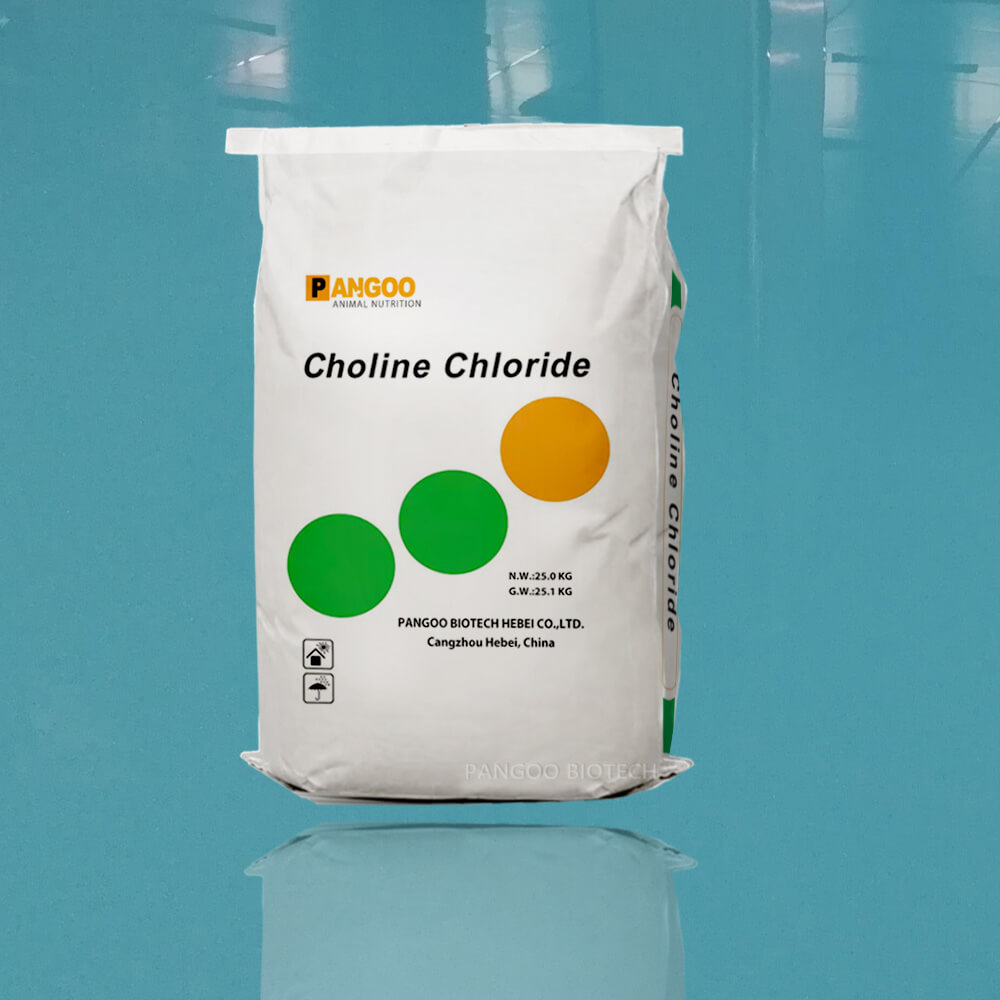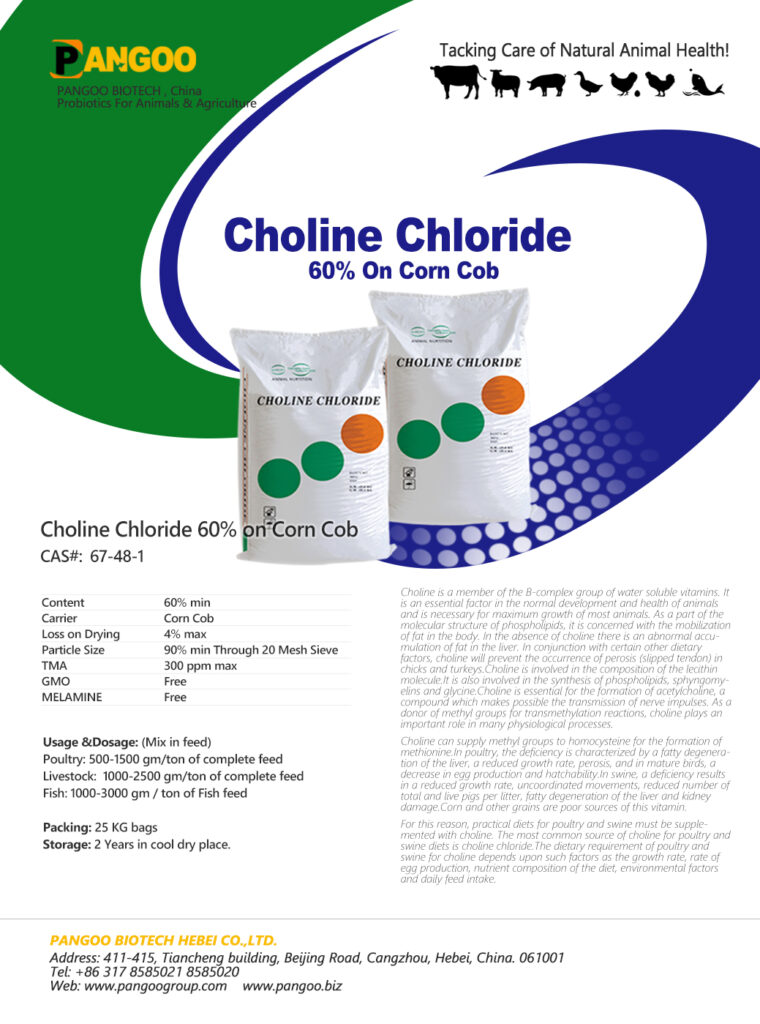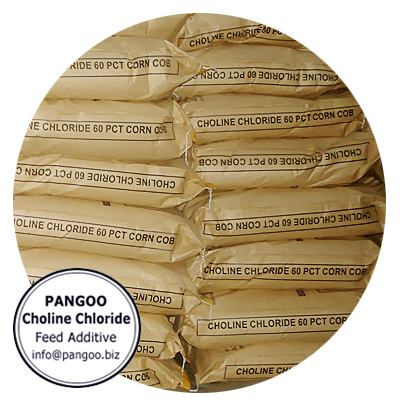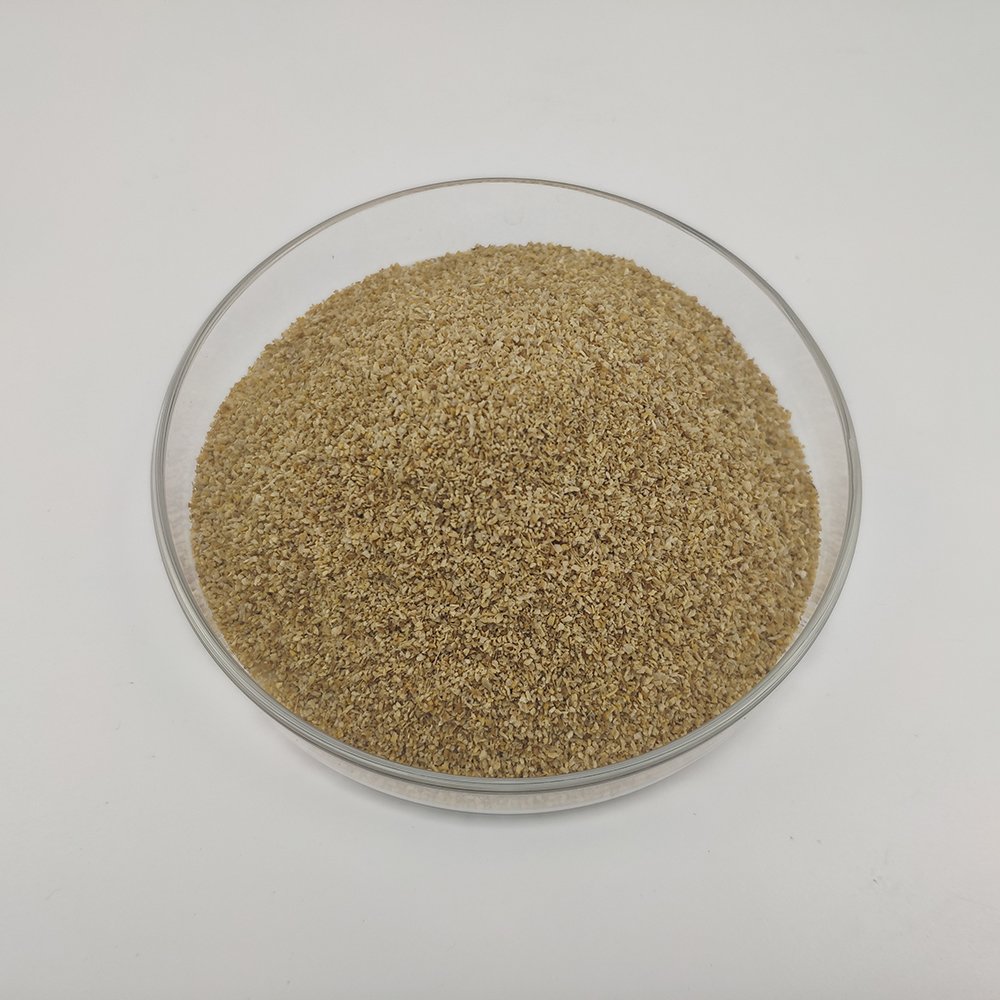
Key Takeaways
Choline chloride 60% corn cob is a key ingredient in modern animal feed. It provides animals with choline, an important nutrient they cannot make enough of on their own. This additive helps keep livestock and poultry healthy and productive. As an expert in animal nutrition, I've seen firsthand how the right supplements can make a huge difference in a farm's success. This product, especially from a trusted manufacturer like Pangoo Biotech, ensures animals get a consistent and effective source of choline. It supports everything from growth in young pigs to egg production in hens.
Choline is a nutrient, sometimes called vitamin B4, that is essential for life. Think of it as a helper for many jobs inside an animal's body. It helps move fat out of the liver, preventing a condition called fatty liver. It is also used to make a chemical that sends messages between nerves, which is important for movement and body functions. Every cell in an animal's body needs choline to build its outer wall. While animals can make a little choline, they don't produce enough for their needs, especially when they are growing quickly. This is why it must be added to their feed. You can learn more in this comprehensive guide to choline chloride uses in animals.
The name "choline chloride 60% corn cob" tells you exactly what it is. The product is 60% active choline chloride, which is the nutrient itself. The other part is a carrier made from ground corn cobs. As a feed formulator, I can tell you that the carrier is just as important as the active ingredient. Corn cob is an excellent choice because it is absorbent and fibrous. This stops the choline chloride powder from clumping and helps it mix perfectly into large batches of feed. This ensures every animal gets the right amount. Pangoo Biotech's choline chloride 60% is a fine, tawny powder designed for easy handling and mixing.
Adding choline chloride to feed provides many benefits for different animals. For farmers, this means healthier animals and better production.

Choline chloride 60% corn cob is made to be mixed directly into animal feed. The amount needed depends on the animal, its age, its diet, and its growth stage. For example, young, fast-growing birds and piglets have very high choline needs. An animal nutritionist can help determine the exact dosage. As an expert, I always remind farmers that an animal's needs can change. During times of stress, like extreme heat or transportation, their requirement for choline can increase. It is often included in a premix with other vitamins and minerals to ensure a balanced diet. It is a key part of many feed additives for swine.
Choline chloride is sold in different forms. The 60% corn cob version is very popular because it offers a great balance of cost and performance. Here is a simple table to show the differences:
| Feature | Choline Chloride 60% Corn Cob | Choline Chloride 50% Silica | Choline Chloride 70% Liquid |
|---|---|---|---|
| Choline Content | 60% | 50% | 70% |
| Carrier | Corn Cob | Silica | Water |
| Form | Granular Powder | Fine Powder | Liquid |
| Best For | Poultry, Swine, Ruminants | Poultry, Pet Food | Swine, Dairy Cattle |
| Cost | Moderate | Lower | Higher |
The 60% corn cob formulation is a workhorse in the feed industry. It's easy to use, mixes well, and is effective for most livestock. When choosing the best choline chloride supplier, it's important to find one that offers consistent, high-quality products like this one.

Choline does not work alone. Its effectiveness is linked to other important nutrients in an animal's diet, especially essential amino acids for animal nutrition. For instance, methionine and choline have a close relationship. An animal's body can use choline to help make methionine if it is in short supply. Because of this, ensuring feed has enough of both DL-Methionine 99% and choline is crucial for efficient growth. Another key amino acid is L-Lysine HCL 98.5%, which is vital for muscle development. A balanced diet with all these components leads to the best results.

Safety is very important when handling any feed additive. While choline chloride is safe at recommended levels, giving too much can be harmful. Always follow the dosage instructions from a nutritionist. From my experience, it's a good practice to never add choline to both the feed and drinking water at the same time. To keep the product effective, store it correctly.
The quality of a feed additive directly impacts animal health. That is why choosing a reliable supplier is so important. Pangoo Biotech has been a leading manufacturer of China feed additives since 1993. Their focus on quality control and eco-friendly solutions means you can trust their products. They produce a wide range of additives, from vitamins and minerals to amino acids and probiotics. Their Choline Chloride 60% Corn Cob is manufactured to meet high national standards, ensuring it is a safe and effective choice for farmers around the world who want to improve the health and productivity of their animals.
What is choline chloride 60% corn cob? It is a feed additive that provides animals with the essential nutrient choline. It is made of 60% choline chloride and a corn cob carrier that helps it mix easily into feed.
Which animals benefit most from it? Poultry and swine benefit greatly because they have high needs for choline to support rapid growth, liver function, and reproduction. It is also used for cattle and in aquaculture.
Is choline chloride safe for animals? Yes, it is safe when used at the recommended dosage. Over-supplementation should be avoided, so it is important to follow the guidance of an animal nutritionist.
How is it different from other choline forms? The 60% corn cob form is a dry, granular powder that is easy to handle and mix. Other forms include liquids or powders with different carriers like silica. The 60% corn cob version is popular for its balance of cost and effectiveness.
Why is corn cob used as a carrier? Corn cob is a natural, fibrous material that is very absorbent. It prevents the choline chloride from clumping and ensures it spreads evenly throughout the feed, so every animal gets a consistent amount.